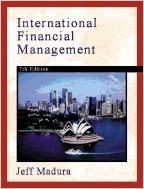Simone has been following her budget and expenses are even with income and she isn't building any debt. She just got a huge promotion at work. As a result, she now has an extra $500 a month, after taxes, in her paycheck. She has decided she is going to keep the same budget and wants to save this new money for her retirement. She already invests enough her 401k at work and wants to invest in something else. Her benefits are pretty good, with good medical, dental and vision and generous vacation days. She is on a PPO now, but her company also just added a medical plan with low premiums and an HSA, though she hasn't looked into what that is yet. She is 25 years old and plans to retire at age 70. She has taken some online risk tolerance questionnaires and she feels she has a high tolerance for risk. She knows she has 45 years to invest this money and isn't worried if it goes up and down in the meantime. She is trying to decide where to invest this money and has generated a list of possible choices. She looks over the list and tries to figure out what to choose and how much of each. Money Market Account High Yield Bond Fund Apple Stock Government Bond Fund Small Cap Aggressive Growth fund Health Care Sector Fund Large Cap US Stock fund EE Savings Bonds International Fund Emerging Markets Fund 1. Considering Simone's goals and risk attitude, what investments do you think would be right for her (you can choose a percent for each if more than one). Why did you choose this set of investments in those percentages?Note: there is no grade given on your chosen investments. Grading is done on your reasoning for selecting them. 2. Imagine Simone invests $500 a month for the next 45 years and earns 7% a year on her money. How much money will she have in her investment account at age 70? 3. If Simone has $1,000,000 in her account at age 60 and decides not to invest anymore, at approximately what age will the account reach $2,000,000 if it earns 7% a year?Use rule of 72. 4. If Simone hates the thought of paying taxes when she is in retirement, what type of retirement account(s) should she put her money into now? 5. If Simone hates paying taxes right now, what type of retirement savings account(s) could she use? 6. Simone decides she wants the best of both- a tax break right now but also doesn't want to pay taxes later in retirement. Is there a type of account she could use to accomplish this? Simone has been following her budget and expenses are even with income and she isn't building any debt. She just got a huge promotion at work. As a result, she now has an extra $500 a month, after taxes, in her paycheck. She has decided she is going to keep the same budget and wants to save this new money for her retirement. She already invests enough her 401k at work and wants to invest in something else. Her benefits are pretty good, with good medical, dental and vision and generous vacation days. She is on a PPO now, but her company also just added a medical plan with low premiums and an HSA, though she hasn't looked into what that is yet. She is 25 years old and plans to retire at age 70. She has taken some online risk tolerance questionnaires and she feels she has a high tolerance for risk. She knows she has 45 years to invest this money and isn't worried if it goes up and down in the meantime. She is trying to decide where to invest this money and has generated a list of possible choices. She looks over the list and tries to figure out what to choose and how much of each. Money Market Account High Yield Bond Fund Apple Stock Government Bond Fund Small Cap Aggressive Growth fund Health Care Sector Fund Large Cap US Stock fund EE Savings Bonds International Fund Emerging Markets Fund 1. Considering Simone's goals and risk attitude, what investments do you think would be right for her (you can choose a percent for each if more than one). Why did you choose this set of investments in those percentages?Note: there is no grade given on your chosen investments. Grading is done on your reasoning for selecting them. 2. Imagine Simone invests $500 a month for the next 45 years and earns 7% a year on her money. How much money will she have in her investment account at age 70? 3. If Simone has $1,000,000 in her account at age 60 and decides not to invest anymore, at approximately what age will the account reach $2,000,000 if it earns 7% a year?Use rule of 72. 4. If Simone hates the thought of paying taxes when she is in retirement, what type of retirement account(s) should she put her money into now? 5. If Simone hates paying taxes right now, what type of retirement savings account(s) could she use? 6. Simone decides she wants the best of both- a tax break right now but also doesn't want to pay taxes later in retirement. Is there a type of account she could use to accomplish this








